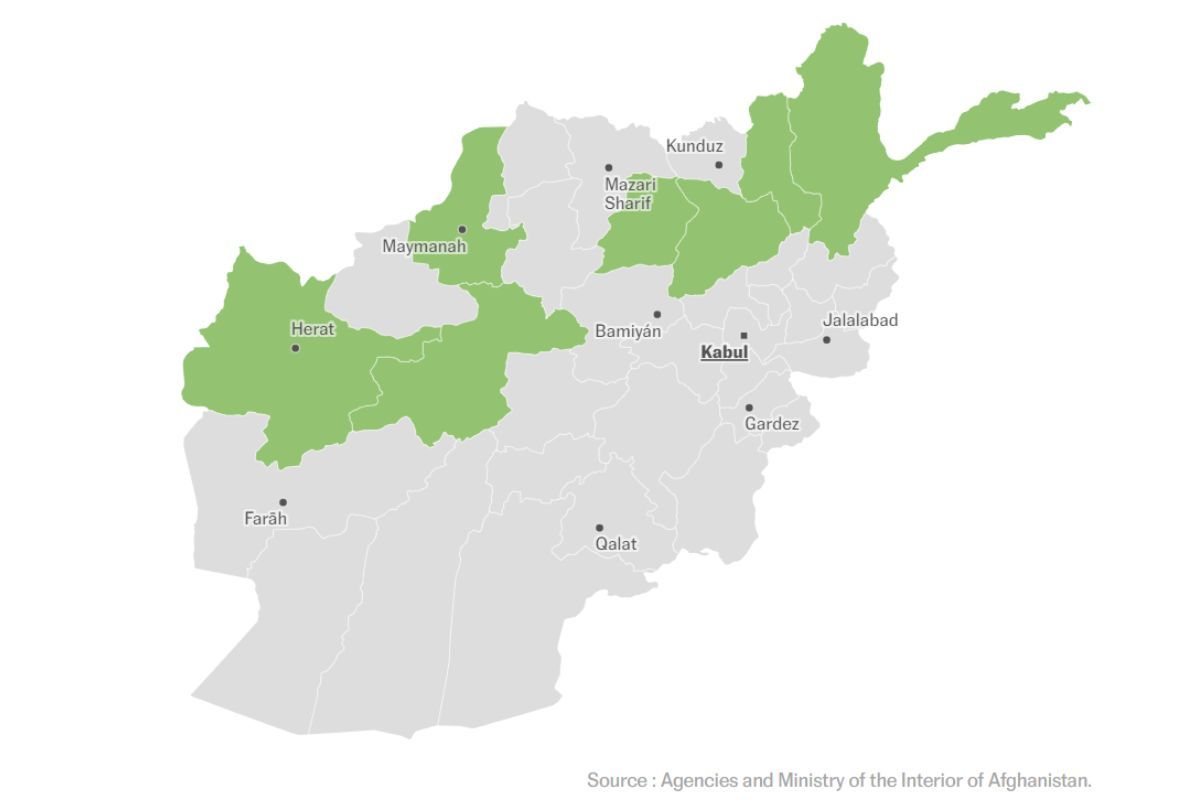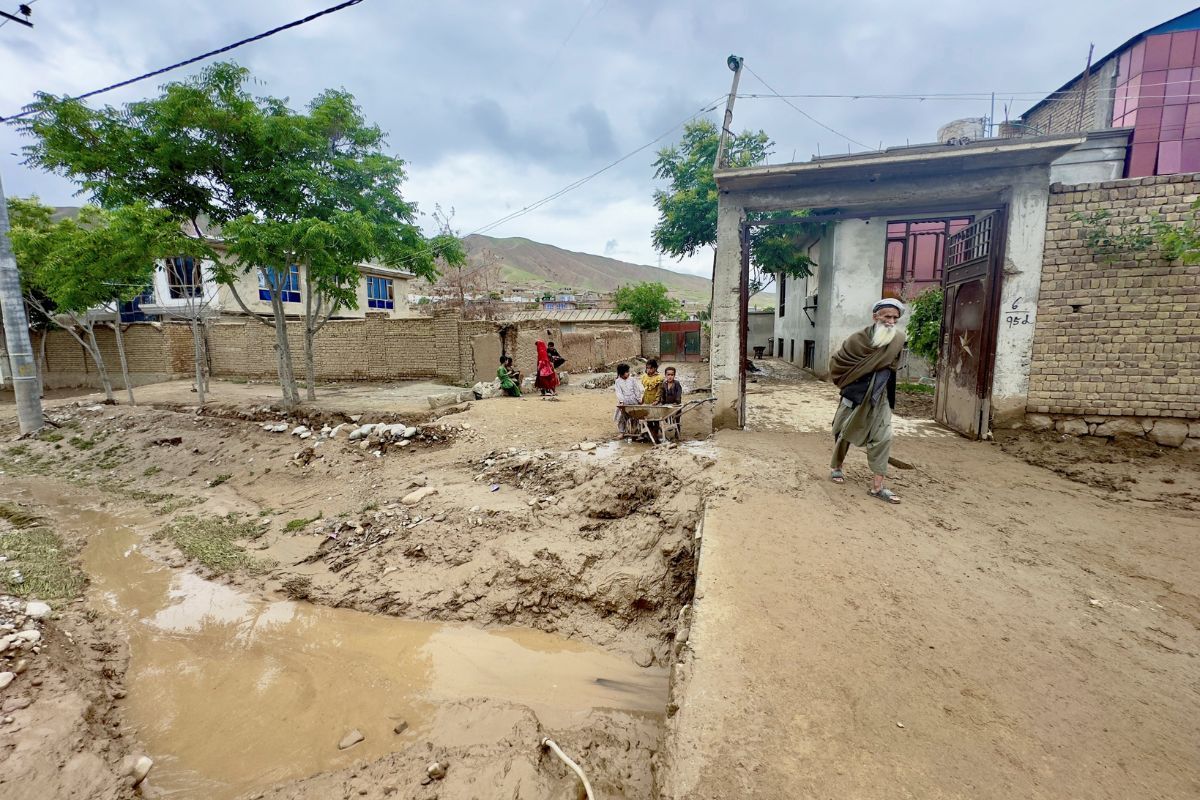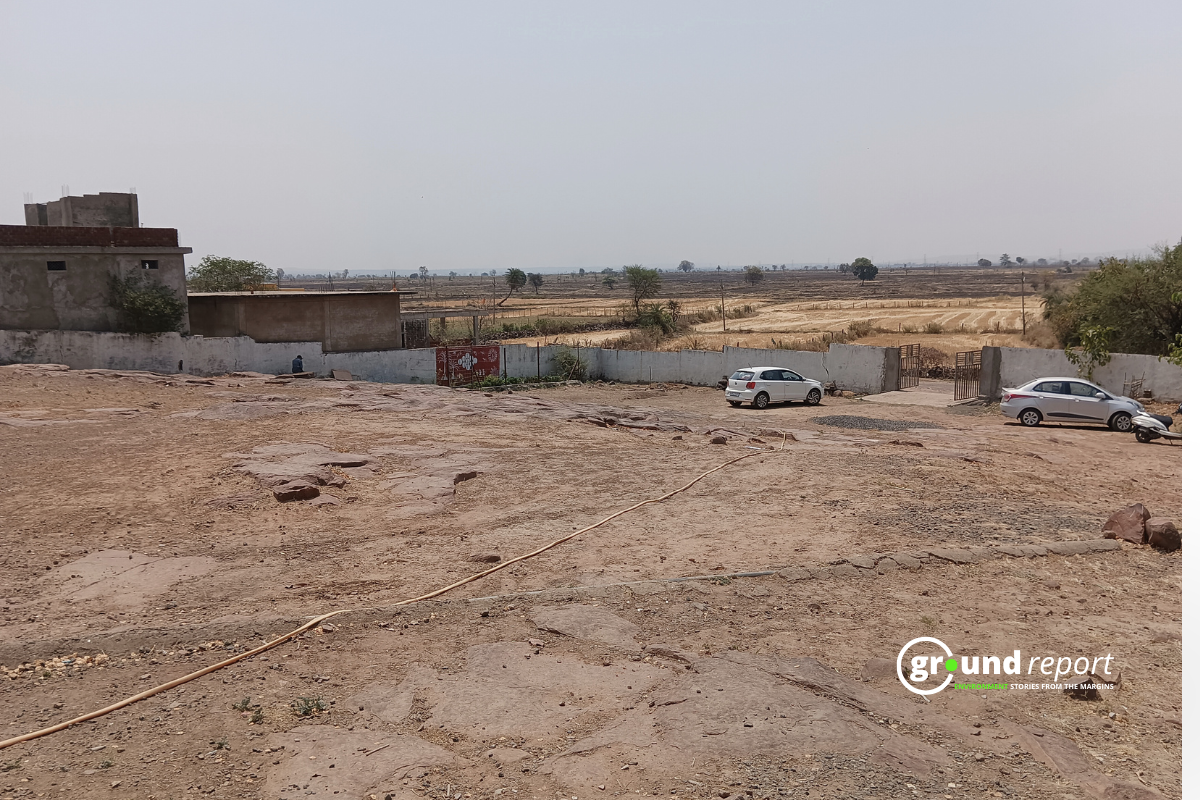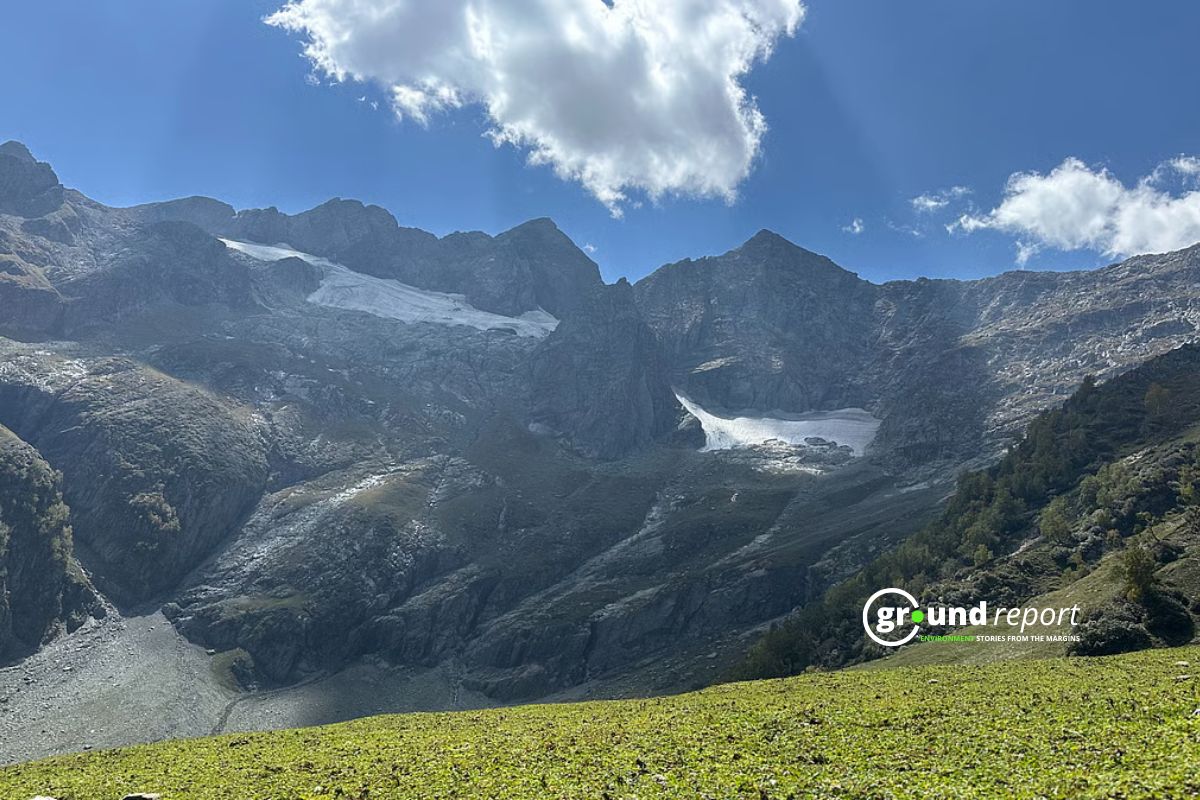Following sudden flooding on Friday, May 10, caused by seasonal rains, a devastating toll has been reported in a single province. Abdul Mateen Qani, the spokesperson for the Ministry of the Interior, revealed to the AFP agency that “Many people are missing,” refraining from providing an exact count. Meanwhile, Rana Deraz, representing the World Food Program (WFP), confirmed the severity of the situation:
According to available data, Baghlan province has witnessed a staggering loss, with 342 fatalities and over 1,630 individuals injured. The calamity has also led to the destruction of 2,011 homes, while 2,800 others have suffered damage. Swift response efforts for the affected populace were immediately mobilized on Saturday.
The WFP announced its distribution of fortified biscuits to survivors, primarily focusing on Baghlan, which bore the brunt of the recent floods amidst a series of similar disasters across the nation.
In response to the crisis, the Taliban Ministry of Defense declared a state of emergency in vast regions submerged by rivers of mud, engulfing homes and hectares of farmland.
Moreover, the ministry stated that the country’s air force initiated operations to evacuate individuals from Baghlan. Over 100 injured persons have been transported to military hospitals in the vicinity.
Jan Mohammad Din Mohammad, a resident of Pol-e Khomri, the capital of Baghlan, recounted to AFP the heartbreaking loss of his self-built home.
“They called to inform me that my house was submerged. When I arrived, I was powerless… I witnessed my family fleeing towards the hills. Everything I had built, my home, my life, was obliterated. It’s beyond comprehension,” lamented the 45-year-old.
Rina Amiri, the US envoy to Afghanistan, expressed solidarity on social media with the flood victims, acknowledging the substantial loss of life and property.
“We urge the Taliban to confront the environmental devastation exacerbated by climate change in a nation already ravaged by four decades of conflict,” she emphasized.
Provinces affected by floods
The Afghan Ministry of Disaster Management reported that provinces such as Samangan, Faryab, Herat, and Ghor were also affected by the floods, though specific casualty figures were not disclosed. Zabiullah Mujahid, the primary spokesperson for the fundamentalists, expressed sorrow over the loss of hundreds of citizens and the injuries sustained, pledging the mobilization of all available resources for rescue operations.

Recent weeks have seen Afghanistan battered by heavy snowfall, intense rainfall, and flash floods. The nation ranks among the most vulnerable to climate change globally and is ill-equipped for adaptation, according to a report by the United Nations Office for the Coordination of Humanitarian Affairs (OCHA).
Compounding the vulnerability is the disruption of much-needed international aid and the freezing of the country’s assets since the Taliban assumed power in August 2021. In July of the same year, despite not yet having control over the entire nation, the Taliban-held Nuristan region witnessed devastating floods, claiming the lives of at least 260 people, highlighting the ongoing challenges faced by Afghanistan.
Afghanistan, rains and agriculture
The floods arrived less than seven months following a series of earthquakes and just two months after severe flooding struck in late March and early April, stated Salma Ben Aissa, director of the International Committee of Rescue for Afghanistan.
In the previous month alone, at least 70 individuals lost their lives to flash floods, which also damaged 2,000 homes, three mosques, and four schools, as per UN reports. Ben Aissa emphasized:
“Whole communities have been shattered, with families lost and livelihoods destroyed. This should serve as a wake-up call to world leaders and international donors: we implore them not to overlook Afghanistan during these tumultuous times.”
Meanwhile, Richard Bennett, UN special rapporteur on the human rights situation in Afghanistan, highlighted the urgent need for both immediate and long-term planning from both the Taliban and international stakeholders.
Afghanistan, grappling with the brunt of climate change, endured an unusually dry winter preceding the current rainy season, hindering soil’s ability to absorb water. Consequently, hundreds of houses lie in ruins, and vast swaths of farmland are buried under layers of mud. This is particularly dire in a nation where over 80% of its 40 million citizens rely on agriculture for sustenance.
Keep Reading
Part 1: Cloudburst in Ganderbal’s Padabal village & unfulfilled promises
India braces for intense 2024 monsoon amid recent deadly weather trends
Support us to keep independent environmental journalism alive in India.
Follow Ground Report on X, Instagram and Facebook for environmental and underreported stories from the margins. Give us feedback on our email id greport2018@gmail.com.
Don’t forget to Subscribe to our weekly newsletter, Join our community on WhatsApp, and Follow our YouTube Channel for video stories.








